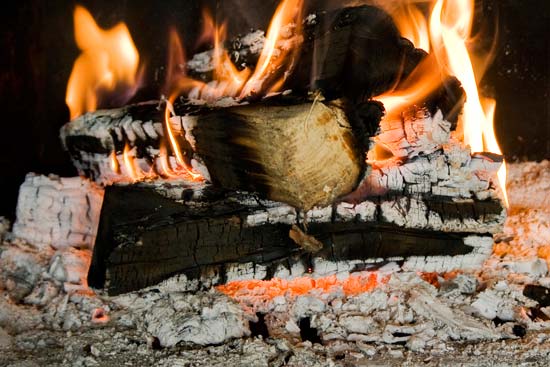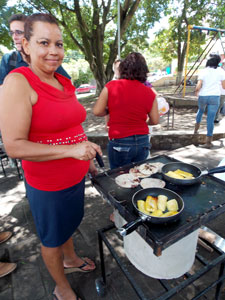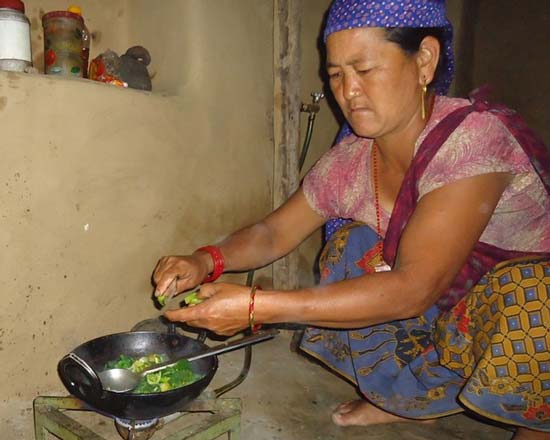Last week, CNN highlighted Nancy Hughes, the founder of StoveTeam International, the organization who makes clean burning Ecocina stoves, as one of their CNN Heroes. Last October, we wrote about distributing dozens of these stoves in El Salvador as part of our “Building Resilience” project.
Inspired by CNN Hero Nancy Hughes, here are ten facts about the problem of indoor air pollution and the possibility of clean cookstoves:
- 3 billion people, mostly in developing countries, cook and heat their homes with open fires and leaky stoves.
- Burning biomass (wood, animal dung, or crop waste) or coal indoors has wide-ranging health effects. Small soot particles penetrate deep into the lungs and can be 100 times higher than acceptable levels.

Traditional stoves can leave small soot particles 100 times more than acceptable levels. - Household air pollution is the 4th biggest health risk in the world.
- Exposure is particularly high among women and young children, who spend the most time near the stove.

Albertina preparing pupusas and plantains at a recent stove distribution celebration in Tepetitán, El Salvador - Nearly 2 million people die every year from illnesses attributable to indoor air pollution, such as pneumonia, chronic bronchitis and lung cancer.
- Traditional stoves and open fires can also cause severe burns.
- Just gathering fuel alone can be considerably time-consuming, taking time away from education and other activities that could generate income for families.

A woman in Nepal cooks on a clean, biogas stove. The use of biogas reduces the consumption of fuel wood by at least 80%, contributing to the conservation of the local forest. - Clean, efficient cookstoves can dramatically reduce exposure to smoke. StoveTeam's Ecocina stoves reduce carbon emissions and particulate matter by up to 70%.
- They also save up to 50% of fuel, a benefit for both the environment and the people who have to collect the fuel.
- Lutheran World Relief has utilized clean cookstoves in El Salvador and Nepal, helping women, children and families live cleaner, healthier lives.
Sources: World Health Organization, StoveTeam International, Global Alliance for Clean Cookstoves

